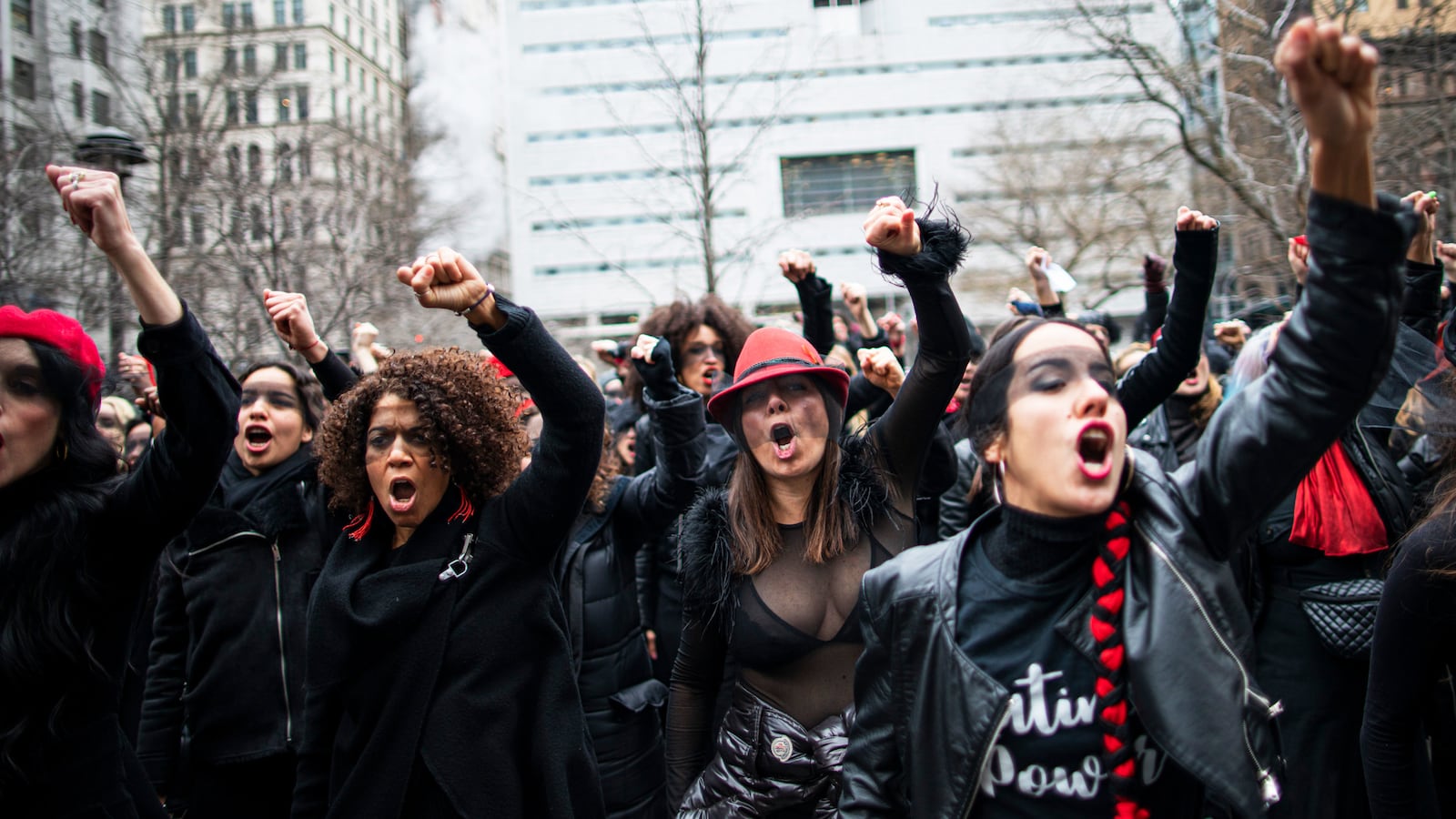Harvey Weinstein, perhaps the #MeToo movement’s most notorious villain, saw his sex-crimes conviction overturned last week, after an appeals court ruled that the trial court judge had improperly allowed in testimony about “uncharged, alleged prior sexual acts.” Weinstein’s 23-year prison sentence was vacated, and whether prosecutors will re-try him remains up in the air.
Weinstein is not a free man. He remains in jail in New York, although his lawyers say he is seriously ill, and they are seeking medical care for him. He was also convicted of rape and sexual assault in California, and could face extradition)" href="https://urldefense.com/v3/__https://www.nbcnews.com/news/us-news/harvey-weinstein-conviction-overturned-what-next-rcna149526__;!!LsXw!UxQMA4pKm7Mn3uP6AE6mHBi2nkBYhOpGiiy5HvZ6ZpncEre5OpiqFGVoObcfUBQxwsP3ZcVoGpG2FoMpXUbVChpd5Sv1KR0$">extradition to that state, where he would be staring down a 16-year prison sentence.
It’s tempting to use this latest turn in the Weinstein case to make sweeping statements about the state of #MeToo and American feminism. And it does seem to be the case that, after a flash of feminist progress, the sights have dimmed for American women. The pussy-grabber ex-president, whose last election campaign flamed out in a spectacle of confederate-flag-carriers men coups and Rudy Giuliani dripping hair dye near a sex shop, is again the Republican nominee for president and may just find himself back in the White House—and this is after a jury found him liable for sexual abuse, and then defamation against the women they determined he sexually abused.
The national right to abortion was overturned by a right-wing Supreme Court, including one member who was accused of sexual assault and confirmed anyway, and while women have been fighting back at the ballot box, Republicans are still refusing to so much as protect birth control access, while they back bills that would ban abortion and possibly even IVF nationwide. Thanks to the abortion bans that now exist in nearly every Republican-dominated state, doctors have refused basic care to pregnant women, and women have gone septic, lost their uteruses, bled out on bathroom floors, and had stillbirths in their cars.
A few of the famous #MeToo men convicted of serious crimes remain in jail, including Danny Masterson and R. Kelly, whose 20-year sentence for child sexual abuse was just upheld)" href="https://urldefense.com/v3/__https://www.theguardian.com/us-news/2024/apr/26/r-kelly-20-year-prison-sentence-chicago__;!!LsXw!UxQMA4pKm7Mn3uP6AE6mHBi2nkBYhOpGiiy5HvZ6ZpncEre5OpiqFGVoObcfUBQxwsP3ZcVoGpG2FoMpXUbVChpdAjVKEBk$">upheld. But others—Bill Cosby, now Weinstein—have seen their convictions overturned. And the non-legal penalties for men facing many allegations of sexual assault and harassment have been similarly mixed)" href="https://urldefense.com/v3/__https://www.washingtonpost.com/lifestyle/2022/10/16/metoo-men-what-happened/__;!!LsXw!UxQMA4pKm7Mn3uP6AE6mHBi2nkBYhOpGiiy5HvZ6ZpncEre5OpiqFGVoObcfUBQxwsP3ZcVoGpG2FoMpXUbVChpdJ6h0G6U$">mixed.
But, as frustrating as some of these developments are, I’m not sure they tell us much about the importance or impact of the #MeToo movement—other than that feminism, as always, is an unfinished project, and its biggest gains have always come with a sustained backlash.
What the #MeToo movement did—and what overturning convictions cannot take away—is reshape Americans’ understanding of sexual assault and sexual harassment as both pervasive and related more to power than sex. Weinstein, Cosby, Trump, and men in politics, business, and media like Andrew Cuomo and Les Moonves—these are all men accused not just of sexual bad acts, but of using their fame and influence to commit those bad acts. The accusations, framed as they were as exploitations of power as much as sexual misdeeds, gave women and men the nation over the language to talk about a layered harms of sexual harassment.
The cascade of accusations against powerful men, as well as the simple declaration that “this happened to me, too” even if a woman’s finger didn’t point at any man in particular, also made clear that sexual abuses aren’t a problem of a few bad apples committing extreme acts, but a spectrum of violations, exploitations, and humiliations that run from the troubling to the devastating—a kind of misogynist metronome counting a steady pulse of mistreatment through women’s lives.
The accusations put men on notice, too, that behaviors that may once have been written off or downplayed may now come at the cost of one’s job, reputation, or even freedom. None of this is to say the movement is perfect. While there is utility in understanding that sexual mistreatment runs across a wide spectrum, there’s also a big problem with putting violence predators like Masterson in the same category as men like Aziz Ansari, who stood accused of no crime, and simply seemed like an awkward and bad lover. And some women’s rights advocates, righteously fed up with millennia of silence and abuse, were less-righteously willing to do away with norms of due process and transparency—an overreach that cost the movement some of its credibility and sparked significant criticism.
It has never been the case, in any society, that every wrongdoer is punished in perfect proportion to their bad act. And it seems unlikely that American society, with its vast inequities, will be the first. But one premise of our justice system, and hopefully one aim of social justice movements, is that while outcomes may not always be what we wish (let alone perfectly just), the key is that the process is a fair one.
#MeToo did not fix the justice system for women, nor the various social systems that disadvantage us and put so many men in positions to prey on and exploit us. But it did help to right those systems, just a little—to add a little weight to the lighter side of a badly off-kilter scale. Weinstein may, some day soon, walk out of prison a free man. After a lifetime of wealth and privilege, he has been able to buy some of the best criminal defense America has to offer. But one thing Weinstein can’t do is lessen the weight of the impact and the reckoning wrought by the women who came forward about him.






